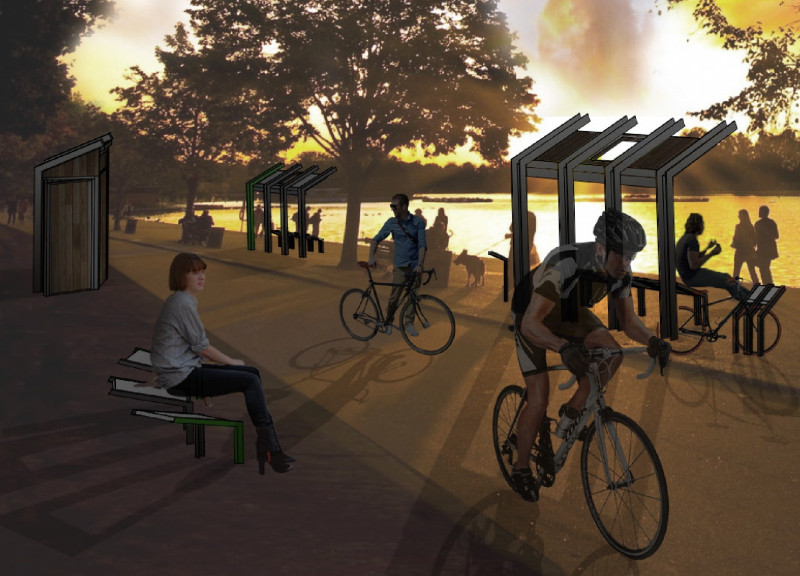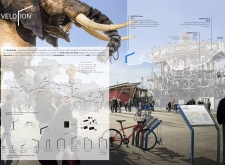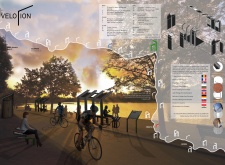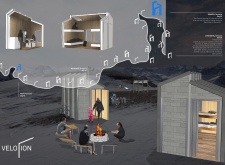5 key facts about this project
The project embodies a blend of functionality and cultural representation, with each rest stop uniquely reflecting the heritage and materials of its geographical location. The architectural design emphasizes modularity, allowing each stop to adapt to varying environments while addressing community engagement.
Modular Design and Adaptability
One of the most distinctive features of the VELOION project is its modular design framework. Each rest stop consists of various components that serve multiple functions, including bike racks equipped with maintenance tools, covered benches for resting, and multi-use communal areas that encourage interaction among cyclists. The adaptability of the modules allows for a bespoke approach, resulting in designs tailored to local contexts and climatic conditions.
Sustainability and Material Use
The VELOION project prioritizes sustainability through its choice of materials. All construction elements are sourced regionally to reduce the carbon footprint associated with transportation and to foster a connection with local communities. Key materials include timber cladding, stone from local quarries, steel frames for structural support, and glass panels for natural lighting. The integration of photovoltaic panels enhances the functionality of these rest stops, supplying renewable energy for essential services.
Community and Cultural Connection
Beyond function, the VELOION project serves as a canvas for cultural exchange, with each site designed to incorporate local architectural motifs and historical references. This aspect reinforces community identity, making each rest stop not only a point of respite but also a landmark that educates visitors about the surrounding area. The incorporation of interpretative signage and design elements inspired by local architecture promotes a deeper understanding of the regional context.
For a comprehensive exploration of the VELOION project, including detailed architectural plans, architectural sections, and architectural designs, readers are encouraged to delve into the project presentation. This will provide further insights into the innovative architectural ideas that underpin the design and functionality of this thoughtful initiative.


























